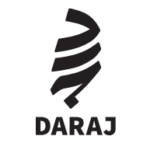In Ivan Krylov’s famous fable The Inquisitive Man a man visits the Museum of Natural History, yet fails to notice a massive elephant amidst the exhibits. It is this 1814 story that gave birth to the famous expression “an elephant in the room:” to deliberately ignore or avoid a pressing matter or imminent danger.
The phrase aptly applies to President Bashar al-Assad recently receiving the Al-Fotuwa football team in the Damascus People’s Palace for winning the Syrian Premier League. Assad praised the team from Deir Ezzor, lauding their triumph as being testament to the willpower required to overcome challenging circumstances.
According to the Syrian Arab News Agency (SANA) the victory shows how sport can defy the ravages of war and terrorism, particularly in Deir Ezzor, which endured years of hardship under the boot of terrorist organizations.
Seeking to dispel any notion of separating sports and politics, Assad emphasized that the joyous occasion of winning the league holds patriotic value. The event was attended by several prominent sport officials, including the heads of the General Sports Federation and Syrian Football Association.
Ironically, Al-Fotuwa President and MP Madloul Omar al-Aziz was also present, even though he recently faced an asset freeze.
Smuggling Ring
He and several other officials stood accused of smuggling. Aziz is widely known to be involved in smuggling drugs and oil across the Euphrates River to areas controlled by the Syrian Democratic Forces (SDF) with the help of Iranian militias and Lebanon’s Hezbollah.
According to several media reports, prior to his escape to Damascus, Aziz is rumored to have been linked with Jabhat al-Nusra, a salafist jihadist organization that used to be affiliated with Al Qaeda.
Upon reaching Damascus, he joined the Air Force Intelligence Directorate (AFID), one of Syria’s most powerful intelligence services.
Using his connections, Aziz went on to form a militia composed of members from his own tribe. He also managed to obtain significant assets in Deir Ezzor, one of which is thought to be worth some 500 million Syrian pounds.
Aziz established especially close ties with Major General Fayez Joumaa, who heads the Syrian president’s convoy. He also enjoys close ties with the Qaterji family, which enabled him to secure oil contracts in the east of the country.
Through his company Sham Al-Aziz, he is engaged in the import and export of construction tools and materials, as well as importing and distributing oil derivatives.
Aziz assumed the presidency of Al-Fotuwa football club in June 2021. Several media have accused Aziz of exploiting his involvement in sport as a money laundering vehicle.
Enjoying close ties with several leading members of the Iranian Revolutionary Guard in Deir Ezzor, Aziz wields significant power in the governorate. He allegedly established protection rackets and controls a well in the Al-Kharrata oil field southwest of Deir Ezzor, which is under the control of the Al-Baqir Brigade, one of the region’s main pro-Assad militias.
Aziz’s financial support for the Iranian Cultural Center in Deir Ezzor further illustrates his ties to Iran.
Damascus’ Wrath
However, it should be noted that corruption allegations are by no means limited to Aziz alone. Recently, Anwar Abdel-Hay, the former president of Al-Wahda Damascus football club, accused Firas Mualla, head of the General Sports Federation, of embezzlement.
Abdel-Hay claimed that Mualla helped cover up corruption cases and exerted pressure on judges to halt investigations. Abdel-Hay, who had previously exposed corruption within Al-Wahda and called for Assad to intervene, later apologized.
Coincidentally, Al-Fotuwa winning the league coincided with the commemoration of Kurdish sheik Mohamed Mashuq al-Khaznawi’s death. Khaznawi became prominent following the 2004 clashes during a football match between Fotuwa and Al-Jihad.
He later participated in the Kurdish uprisings, which incurred the wrath of Damascus. His family has accused Assad and his brother Maher of Khaznawi’s abduction, torture, and murder.
The intertwinement of sports and politics, alongside the involvement of corrupt officials, exemplifies a lack of integrity within the country’s sport institutions. Assad’s reception of the Al-Fotuwa team seemingly aimed to project an image of stability and normalcy.
Yet, the presence of club president Aziz, amidst the persistent and numerous accusations of corruption in Syria, rather shed a light on the kleptocratic nature of the Assad regime … which brings us back to the fabled elephant in the room.






